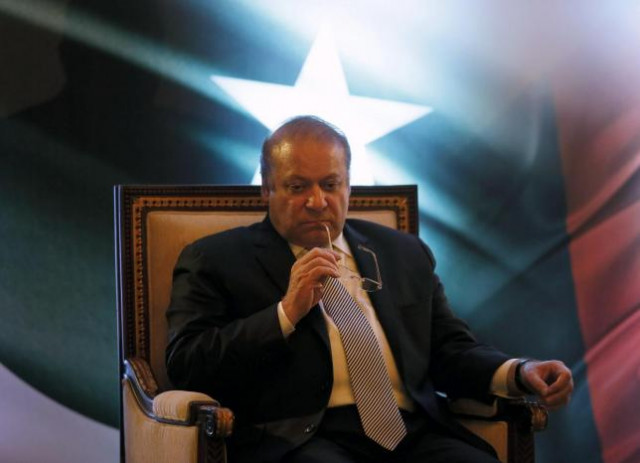Half-democratic structure cannot uproot corruption
People should not expect big heads will roll for accountability

People should not expect big heads will roll for accountability. PHOTO: REUTERS
Such issues need to be viewed in the politico-economic context and require application of pliable instruments that resolve them according to the law and morality.
Panama leaks: Opposition invites government to settle probe terms
Many experts say corruption is an impediment to economic growth, welfare and progress. An economist will choose to propose measures that will institutionally eliminate the channels being used to make the dirty buck. And, he or she will hate to raise political dust over technical issues.
Rhetoric apart, there could be only three methods to deal with the corrupt channels. One is target-specific – monitoring certain individuals like politicians, generals, judges, businessmen and bureaucrats, and punishing them by using specifically-created legal instruments.
Another is the institutional anti-corruption method. This includes monitoring from inside and independently the institutions like bureaucracy, parliament, judiciary and monetary and business channels with the assistance of forensic experts to punish them and recover the money.
Yet another instrument is the democratic anti-corruption mechanism, which should be headed by parliament, investigated by the regular monitoring apparatus and monitored by the media. This involves framing of cases with compelling evidence and rigorous punishment with the recovery of money.
These three models can be applied in different environments. Those demanding investigation into the conduct of people named in the Panama Papers ignore the fact that Pakistan lacks the democratically operational anti-corruption mechanism.
PM must quit, go to jail, if proven guilty: Imran
The mechanism that stands on a half-democratic structure cannot uproot corruption in an environment where certain institutions and forces enjoy virtual impunity thanks to their exceptional status. They cannot be monitored from outside and even parliament cannot do anything.
In such an environment, the corrupt elements are not just encouraged but institutionally protected. This protection needs to be removed before demanding accountability that needs a level-playing field.
Limits of state
Corruption, accountability and the state have joint arteries everywhere in the world. The state can be used to curb corrupt practices but its limits vary from state to state.
The function of the state is in the hands of elements that either take over themselves or represent public choice. In both cases, public revenues and the expenditure budget take a hit. There is no escape from this inevitability, though it is not conceded openly anywhere on this planet.
Under democratic accountability, checks on such elements are institutional and regular. In pre-democratic structures, such checks are loose and rarely functional.
A modern state historically firms up the instruments of monitoring, investigation, litigation and punishment, but on the other hand, it allows loopholes that can be exploited for corrupt practices. At the same time, it allows media freedom to narrow down the channels which could be exploited for corruption through monitoring, investigation, litigation and punishment.
The Panama leaks and Pakistani politics
The limitation of this article is that it cannot politically analyse the statehood and corruption, and the pliability of the above three aspects.
Dual character
Still, commenting purely in terms of political-economy, one can deduce that the modern state, be it democratic or pre-democratic, dysfunctional or rogue, runs on a mechanism that has the dual character of allowing political leaders, members of judiciary and bureaucracy to take a toll on the economy while staying mindful that the judiciary, parliament and political parties would be useless and unpopular if corrupt practices are not punished where the economy is openly and deeply hurt.
The focus should remain on monitoring, investigation, punishment and recovery of the stolen state money, and of course, on the trail of asset transfer. It should be kept in mind that the politicians, bureaucracy, members of judiciary and even many media persons would not support accountability that would render political activity and misuse of national budget impossible.
Therefore, people should not expect that big heads will roll for accountability, though there could be adventurism by political or apolitical forces on the pretext that accountability in the face of Panama Papers is imperative.
History of Pakistan is witness to such adventurism and political forces that supported it not only lost face but also the chance to continue a respectable political career.
The writer has worked with major newspapers and specialises in analysis of public finance and geo-economics of terrorism
Published in The Express Tribune, May 9th, 2016.
Like Business on Facebook, follow @TribuneBiz on Twitter to stay informed and join in the conversation.



















COMMENTS
Comments are moderated and generally will be posted if they are on-topic and not abusive.
For more information, please see our Comments FAQ